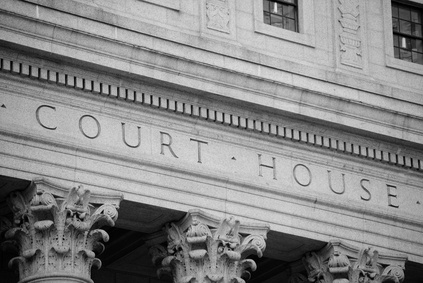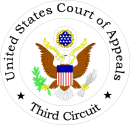Although just over five pages in length (excluding the cover page and three-page summary), New Jersey S269 is not your garden-variety piece of privacy legislation and is packed with plenty of weedy issues.
Posts tagged as “New Jersey”
The Supreme Court of New Jersey held that where a plaintiff challenges the validity of a transaction as a whole and not specifically the arbitration agreement that is included as part of a transaction, the plaintiff must arbitrate their claims because an arbitration agreement is severable and enforceable, notwithstanding a plaintiff’s general claims about the invalidity of the transaction as a whole. Accordingly, the judgment of the appellate court was reversed and the trial court orders compelling arbitration were reinstated. A copy of the opinion in Goffe v. Foulke Management Corp. is available at: Link to Opinion. The plaintiffs each purchased cars…
The U.S. District Court for the District of New Jersey recently concluded that a putative class representative did not have standing under Spokeo to sue for a technical violation of the federal Fair and Accurate Credit Transactions Act (FACTA). The Court identified the issue as whether the consumer alleges a sufficiently “concrete” harm to confer standing, based on a technical violation of FACTA, 15 U.S.C. § 1681, et seq., when a retail store printed the first six numbers and last four numbers of his credit card on his transaction receipts. Relying on the Supreme Court’s ruling in Spokeo Inc. v.…
The U.S. District Court for the District of New Jersey recently ruled that 18 telephone calls to a consumer over a two-week period – of which 17 were unanswered, and the last where the consumer hung up – did not violate the federal Fair Debt Collection Practices Act (FDCPA). In so ruling, the Court also affirmed that under the federal Telephone Consumer Protection Act (TCPA), persons who knowingly release their phone numbers have in effect given their invitation or permission to be called at the number which they have given, absent instructions to the contrary. A copy of the opinion…
Filing a lawsuit to collect a time-barred debt does not violate the Fair Debt Collection Practices Act according to a June 30 decision from a New Jersey state trial court. The decision, Midland Funding v. Thiel, involved a collection action to recover the unpaid balance of a Home Depot credit card. The law firm representing the creditor filed suit under New Jersey’s six-year limitation period for contracts, which has been applied to countless credit card debts. The trial court dismissed the claim reasoning that this particular credit card could only be used to make purchases at Home Depot. Four Year Limitations…
In today’s FDCPA Decision of the Day, a United States District Court for the District of New Jersey held that an attorney’s letterhead, standing alone, is not an implied threat of litigation. The Plaintiff, a New Jersey resident, claimed that the defendant, a Georgia law firm, violated section 1692e(5) of the FDCPA (prohibiting “[a] threat to take any action that cannot legally be taken or that is not intended to be taken”) when it sent him a dunning letter. The basis for the claim was that the Georgia law firm could not file a lawsuit because none of its attorneys were licensed in New Jersey. “It is…
When a law firm uses its letterhead to collect debt for its client, it “cannot disclaim the fact that he or she is engaging in the practice of law when using law firm letterhead,” states a recent joint opinion by the New Jersey Committee on the Unauthorized Practice of Law and the Advisory Committee on Professional Ethics. 1 Rejects Lawyers’ Use of Greco Disclaimers The Opinion directly contradicts the Second Circuit Court of Appeals’ decision in Greco v. Trauner, Cohen & Thomas, LLP.2 In Greco, the court explained that: attorneys can participate in debt collection in any number of ways,…
Chris Christie came into office on a promise to take the NJ Supreme Court off “its pedestal” and place it on a equal footing with the legislative and executive branches. The Star Ledger reports on the devisiveness that has permeated relations between NJ’s Governor and the Courts and its impact upon NJ’s legal system. You can read the article here.
Yesterday, the Third Circuit again held that a communication from a debt collector to a debtor’s counsel is not barred by New Jersey’s common-law litigation privilege. The Court reversed the District Court’s dismissal of a §1692f(1) claim relying on its decision last month in Allen v. LaSalle Bank. As I wrote last month in discussing Allen, the appeal in Ogbin was pending at the time Allen was decided (http://tinyurl.com/4rsyevr). This decision did not offer any surprises or further reasoning into why the state common-law litigation privilege is ineffective against FDCPA claims. The decision is available here: Ogbin v Fein Such
The FDCPA does not serve as a “back door” which would allow such a private right of action [for a bankruptcy discharge violation].
When a New Jersey law firm purchased charged-off debt, then filed suit to collect it, it found itself facing a Fair Debt Collection Practices Act (“FDCPA”) putative class action. The lawsuit alleged that Hudson Law Offices, P.C. violated the New Jersey Professional Services Corporation Act (“PSCA”) by engaging in the business of purchasing defaulted credit-card debt and then suing alleged consumers to collect those debts. In denying the law firm’s motion to dismiss the Complaint, a New Jersey Federal Court Judge found that the a law firm organized under the New Jersey PSCA is prohibited from engaging in any business…









